Looper (2012) [Part 1]
/(spoilers ahead)
Looper is the rare intelligent movie that also delivers on action, suspense and sci-fi elements. To me, it was a perfectly constructed story that constantly surprised me (I’m not surprised by movies very often) and kept me at the edge of my seat. When it ended, the first thing I thought was: “I want to watch that again.” It’s also one of those movies I enjoyed so much while it was still on that I was sure it would fail at its ending. But it certainly didn’t disappoint. It definitely cranks up the action factor towards the end, but the action always has a purpose and is story-driven and Rian Johnson, the writer-director, keeps coming up with innovative ideas to film the action. In fact, the whole movie is so well-made and uses the possibilities of cinema in a way that you wonder why everyone else doesn’t do that more (I guess it boils down to talent). Johnson’s use of camera and editing is brilliant, which is maybe surprising because his script is so well-written, too. Is this the better Inception? I don’t know if it’s a fair comparison, but the moment a student mentioned it, I couldn’t stop thinking that Looper shows why Inception might be overrated. Then again, both feature great performances, but I enjoyed the Joseph Gordon-Levitt/Bruce Willis pairing so much and all the supporting actors and actresses keep up that level easily. The movie doesn’t even disappoint when it comes to the role of women (I think), but I should save that for my analysis.
The movie doesn’t deal as clearly with themes I talk about here as other movies, but the longer I was watching, the more things popped up. We have the aforementioned strong female character, parent-child-relationships, dystopia and escaping your fate (very reminiscent of Lola rennt). Let’s see what else comes up when I go through the movie.
The future in Looper is not a bright one. This is not a new concept as dystopias have been around for about 200 years. Although everyone basically agrees that our culture is the only right one, hardly anyone can imagine that the future will be good, which is evident by all those dystopias. Looper is no different and its depiction of the future is very similar to my favorite dystopia, Children of Men. The streets are dirty, there is trash lying around, people are poor and violence is everywhere. If you’re lucky, you are rich and don’t have to worry about any of this. The class divide has grown and rich people despise poor people more than ever before, as Seth (Paul Dano, continuing his sleazy typecasting) shows in his first scene where he’s afraid that a poor black man might come too close to his motorbike. The loopers of the movie, people who get paid for killing people from the future, show that “dog eat dog” still is the maxim in this world. They don’t have time to enjoy their lives, they live shitty lives with immoral jobs to save up for some uncertain future, which most of them will never reach. It is a clear continuation from the society we know now and therefore follows the tradition of good sci-fi that reflects upon our present instead of imagining a disconnected future.
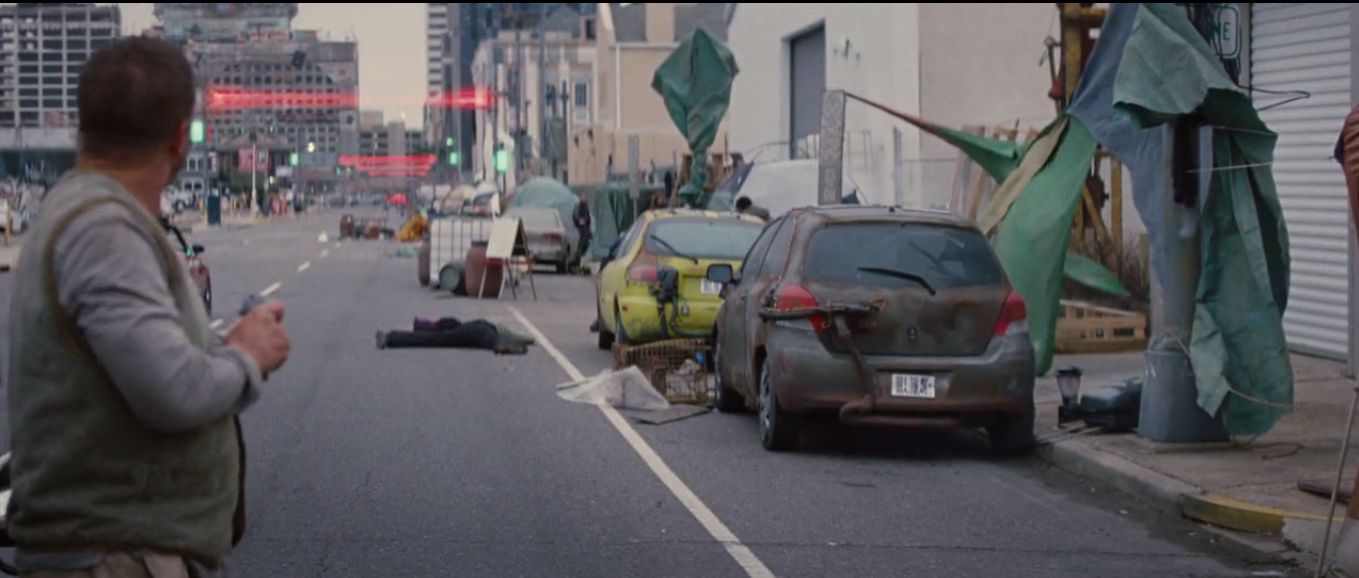
Joe (Joseph Gordon-Levitt, one of the most underrated actors of our time?) is a perfect symbol for this cold world. He almost never shows feelings, his relationship to Suzie (Piper Perabo) is superficial, Seth seems to be his only friend and he’s a drug addict. After he drops the drug into his eye for the first time in the movie, a tear runs down his eye, an artificial feeling that he can’t reach any other way. The difference between sober and high is shown by a kind of jump cut and one of many amazing transitions, in which his colleagues push him into the next scene before his world is turned upside down because of the drug, the only way he can feel some kind of joy. But this drug-infused night suddenly comes to a halt when he almost runs over a little boy with his car. It’s only later in the movie that we can realize that he sees himself in that boy, reminding him of his traumatized childhood and how this has led him to be the distant killer he is now. The fun night is then over and we see Joe with bloodshot eyes, the trauma has caught up to him and he has to do everything to bury it again. To stress that feeling, the moment is followed by a montage of his monotonous, pointless and violent daily life, killing, killing, killing, partying and always ending up alone at home (shown by another one of those great transitions; you can easily miss them but they’re extremely effective).
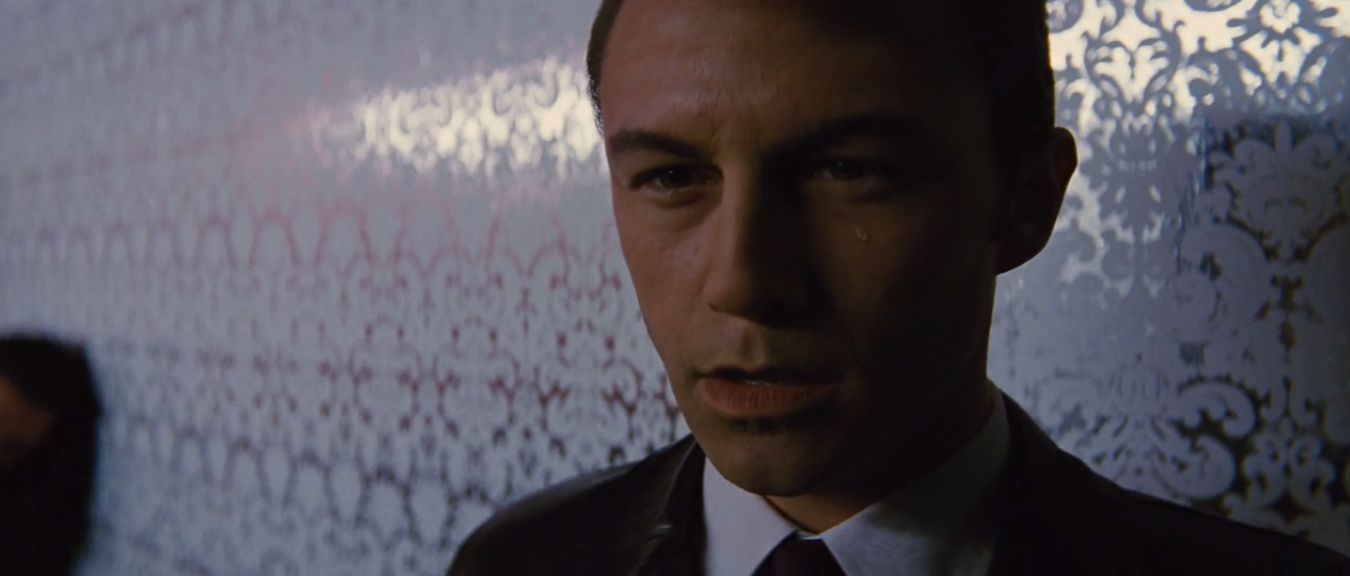
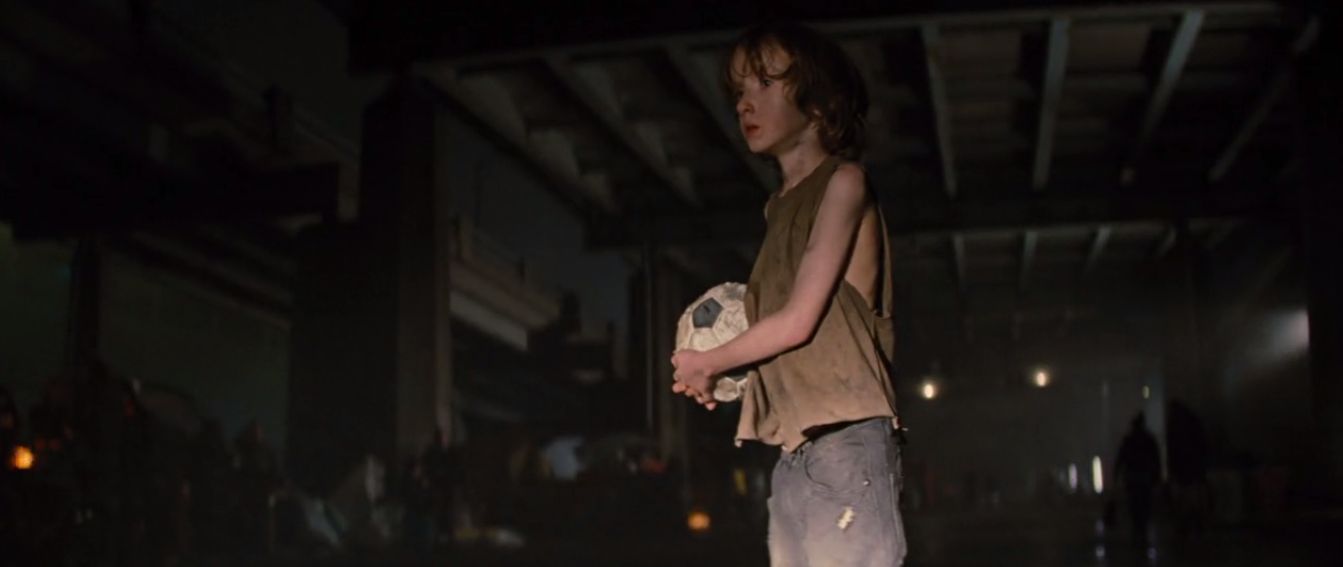
But one night Seth comes to him with the problem almost every looper encounters at one point: you have to close your own loop – meaning instead of some stranger, your older self appears from the future and you have to shoot it. Think of the psychological implications! We always have to live and deal with our past, having to “kill” or reconcile with our younger self if it keeps us from moving on in the present. But our future self is what we are always working on, but we only realize if we succeeded when it becomes the present. But the loopers are presented with their future and they are supposed to kill it, which is contrary to our instincts, so it is understandable that Seth hesitates and lets his older self escape. Joe decides to help him at first, but after a conversation with Abe (Jeff Daniels as a great dry scary villain), his boss from the future, he decides against it because he doesn’t want to risk his future, which he has been planning for years now. Because Seth saved his future self, Joe decides to save his own future instead of his present friendship, a motivation that becomes important later on. Joe feels so neglected from what happened in his childhood that he now values his future more than anything else. It’s all he has because his past and his present are so empty, so he has to look towards the future. It is interesting that this decision comes from the only authority figure Joe listens to, thereby falling into the mechanisms of being a child again. So he betrays his only friend, leading Seth’s older self into slow disintegration in one of the most harrowing, brutal and astonishing sequences I have ever seen, that never shows the actual violence and brings the movie to a different level.
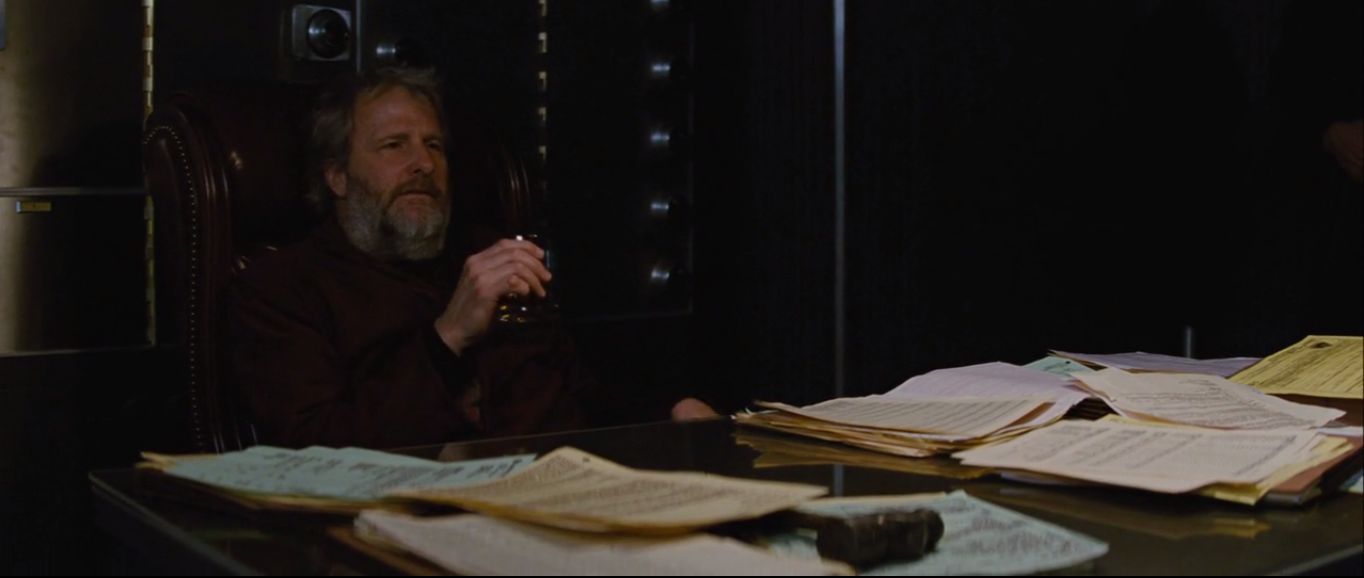
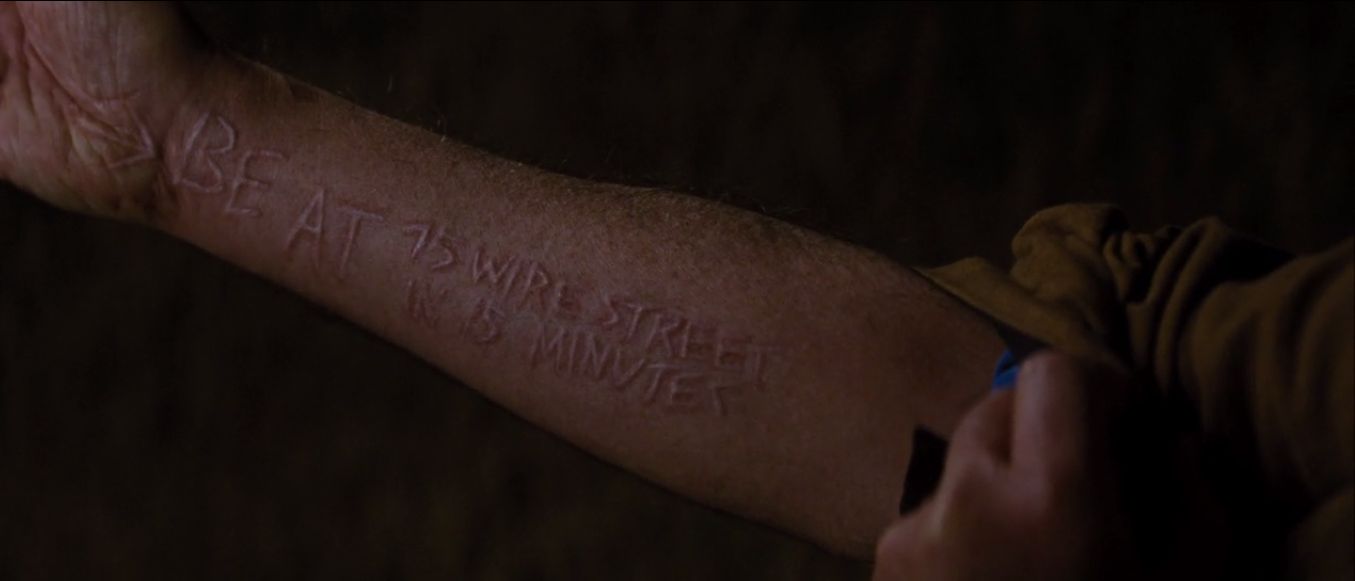
Joe is a different person after this incident, at least for a while. His relationship to Suzie seems even more distanced, there is actual blood on his money and he seems somewhat uncertain about his future. And then the movie really gets going as, somewhat expectable, his own future self (Bruce Willis) turns up and he faces the exact same decision as Seth before him. He decides in a different way, by shooting and then trying to get him. He does not want his future to be ruined by his future, so to speak, that’s how determined he is on staying true to his plan. (No, this is not a movie for brainless escapism.) The pivotal scene where Joe faces future Joe on the field has a very distinct cloud in the blue sky. Clouds appear throughout the movie (thanks IMDb trivia for pointing that out), which makes sense because this moment shows how cloudy his future (or any future) is, no matter how many plans we make. Our society is obsessed with planning everything out, but that doesn’t change the uncertainty of the future one little bit. What better metaphor could be used for this than clouds that obstruct our view?
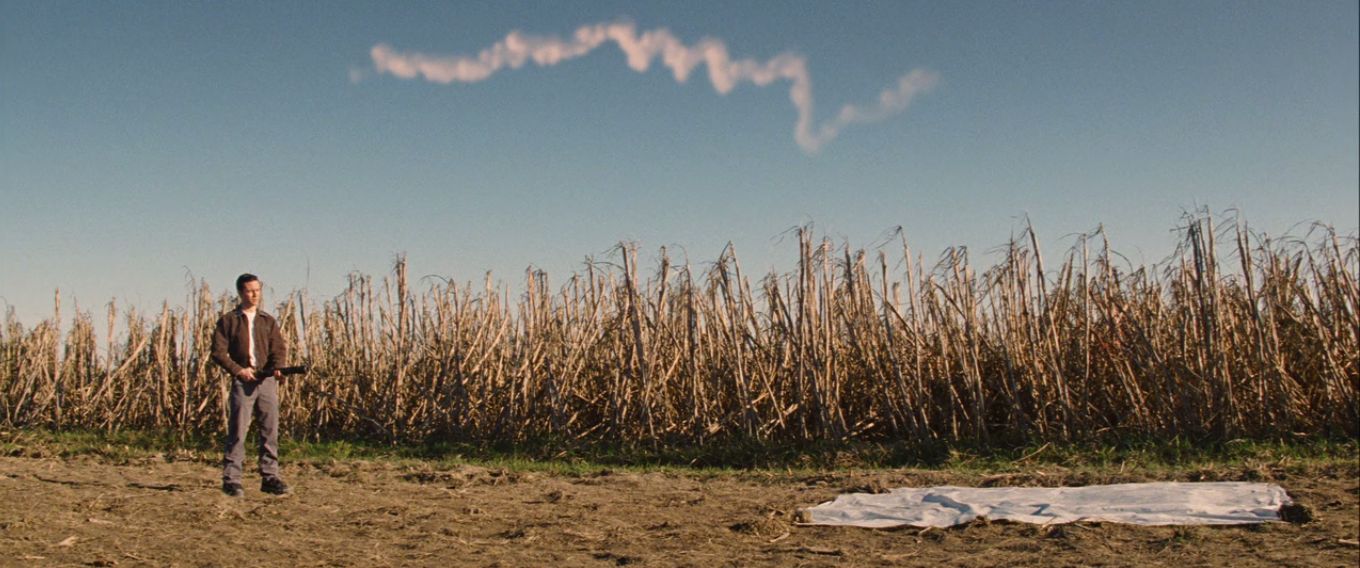
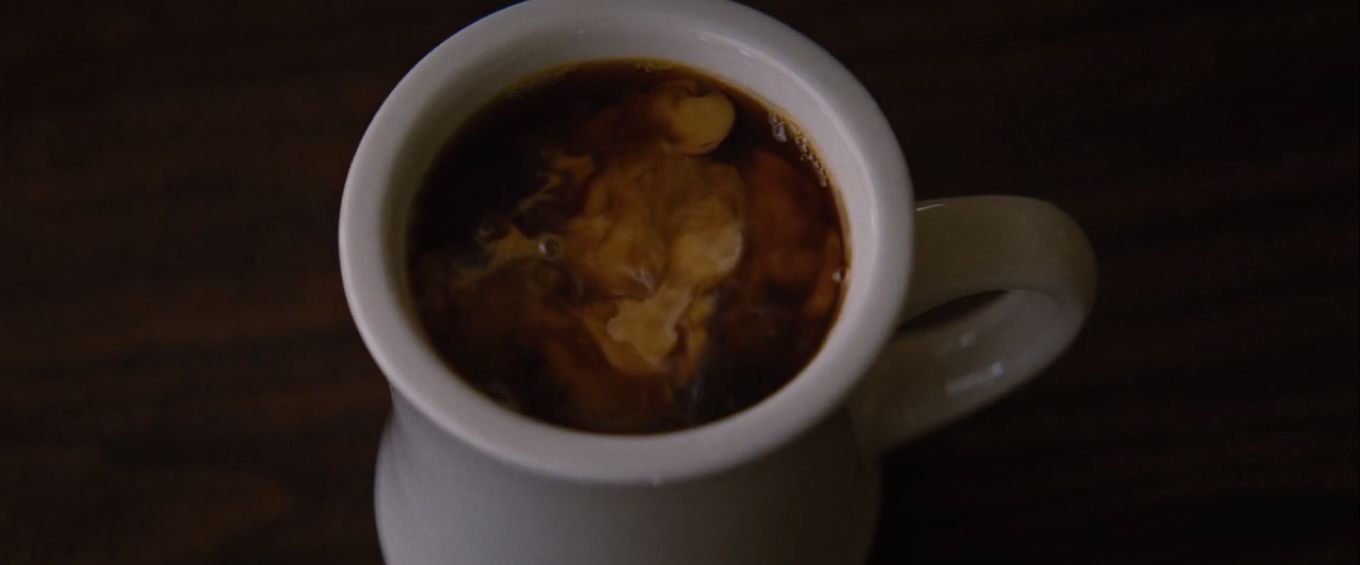
Then the movie takes us on a trip to the future, in a way that you can’t be prepared for, by simply jumping ahead in a long montage that only guides us by showing big title cards with the year we’re in. Movies love to play with time, but I don’t think I have ever seen a movie jumping 30 years into the future in two minutes after the movie has been running for 30 minutes already. It’s an amazing feat and it works because at this point you don’t know where the movie will take you. Will it stay in the future? Will it go back? Will it jump back and forth? The answer is not that easy (who needs easy answers anyway?). What this montage shows us is that all of Joe’s plans were futile insofar as he doesn’t end up where he wanted to (Shanghai instead of Paris) and also that he can’t escape his past. He stays a killer for a long time and once he quits his job and finds love, he is still not safe. There is still a loop to close.
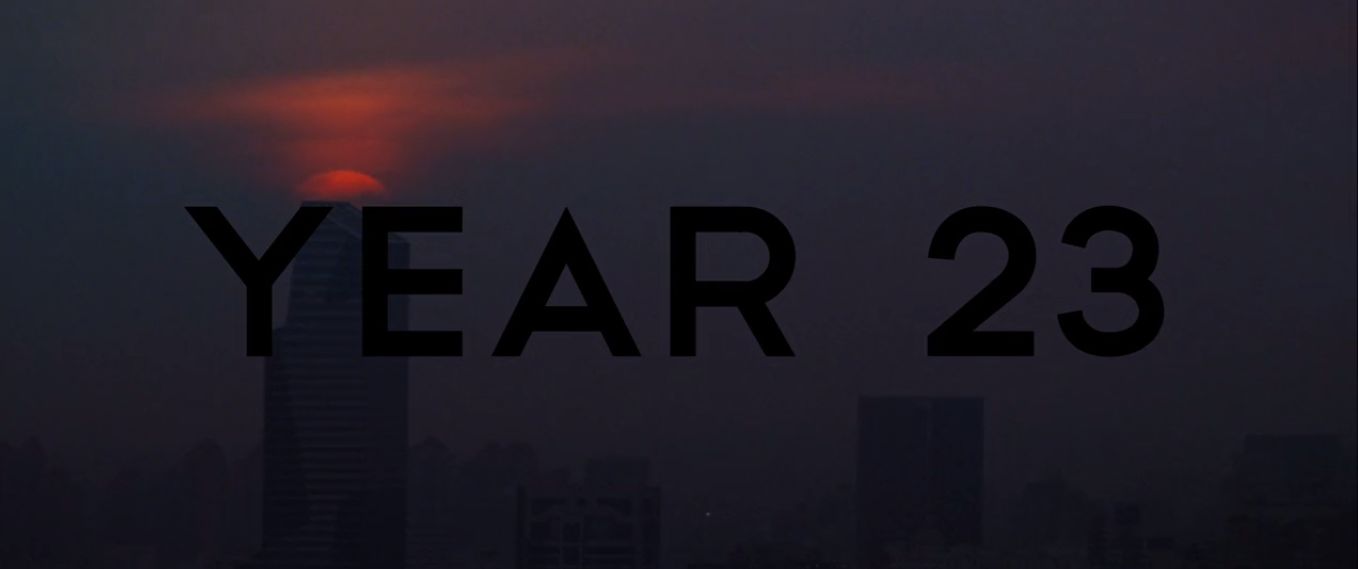
I’m only 35 minutes into the movie and I’m at 1.500 words already, so I’ll make an unprecedented break here and come back with part 2 on Friday. See you in the future (which will be the past on Saturday)!

